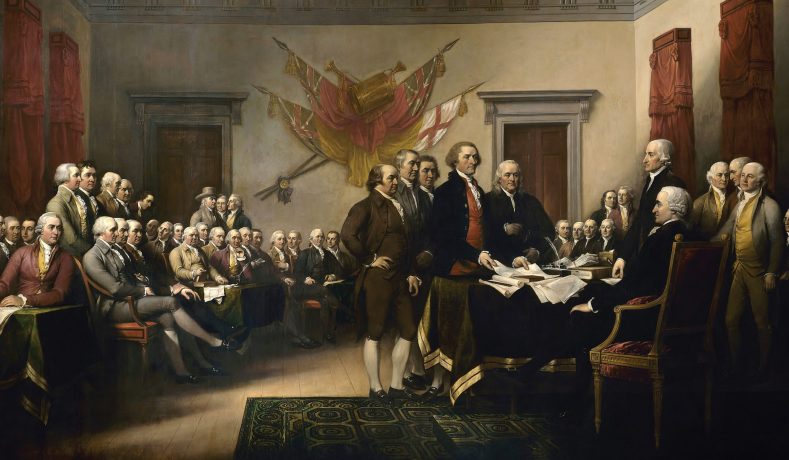
(John Parrot/StockTrek Images/Getty Images)
Americans have natural rights all wrong, Cameron Hilditch maintains:
How do we know which rights are “natural” to human beings? This is an important question to ask because, as the [Pompeo] Commission’s report itself concedes, there is now “widespread disagreement about the nature and scope of basic rights.” Furthermore, how is this kind of “widespread disagreement” even possible if the rights of man are “self-evident,” as Jefferson famously argued in the preamble to the Declaration of Independence? If Jefferson was correct, a lack of popular consensus surrounding the nature and scope of natural rights should not exist among rational Americans nearly a quarter-millennium after the Founding. And yet, such disagreement persists, mainly because Jefferson was wrong. The idea that the human being’s right to life, liberty, and the pursuit of happiness is “self-evident” to the unaided rational intellect is thoroughgoing and unadulterated nonsense. Still, it seems to have been the conviction of many of our most influential Founders.
When someone makes a statement that seems obviously absurd, it is generally useful to stop and think whether there is a way of interpreting it that isn’t obviously absurd. If the truths the Declaration proclaimed were “self-evident” in the sense of being instantly understood and accepted as true by everyone, there would hardly have been a need to proclaim them (let alone to proclaim them as something “we hold”).
But there is a better way to understand self-evidence: A self-evident truth is one that can’t be deduced from more basic truths and can only be defended by indirect arguments rather than formally proven. (Take, for example, the principle of non-contradiction.) And if we view self-evidence in that light, the Declaration is not susceptible to the debunking arguments that Hilditch makes. The self-evidence of the truth that all people equally have human rights does not imply that it is “an obvious and intuitive deduction from human nature,” and so the fact that many civilizations have not grasped it does nothing to dent its self-evidence. Nor does the self-evidence of this truth imply that our civilization’s grasp of it owes nothing to its Jewish and Christian inheritance; it owes a very great deal to it — as the Declaration’s own wording suggests.


